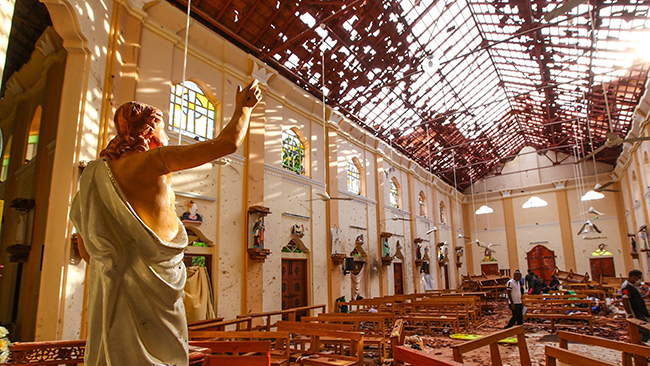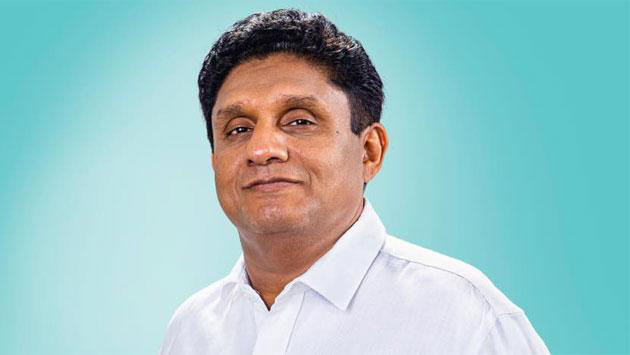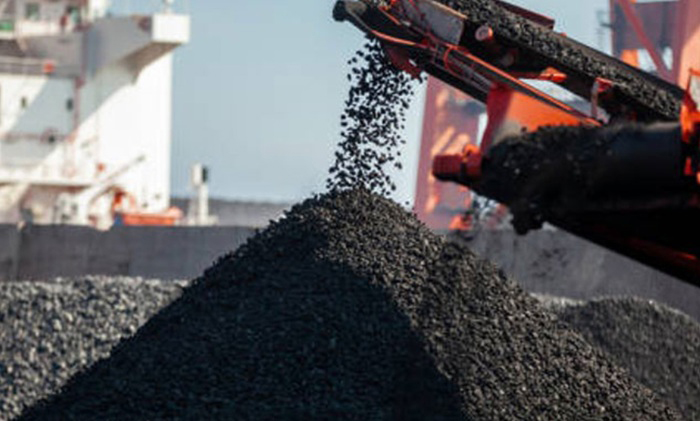News
Prof Malavige predicts dengue will get worse with climate change unless…

By Rathindra Kuruwita
The impact of dengue will probably get worse due to climate change, Professor Neelika Malavige of the Department of Immunology and Molecular Medicine, University of Sri Jayewardenepura and Head of Dengue Global Programme and Scientific Affairs, Drugs for Neglected Diseases Initiative (DNDi) has said recently at a conference organized by DNDi in Thailand.
The conference was held in parallel to the 20th International Congress for Tropical Medicine and Malaria (ICTMM). DNDi is a non-profit drug research and development (R&D) organization that is developing new treatments for neglected diseases like dengue.
Professor Malavige said that as the world got warmer, dengue would spread to Europe and North America. She added that dengue fever had become increasingly common in recent decades worldwide with around 390 million infections occurring each year. Climate change had been identified by WHO and other national, and international health authorities as one of the primary causes of the global spread of dengue fever and other Aedes aegypti-transmitted viral infections, she said.
“The weather has an impact on vector-borne illnesses. Rainfall and ambient temperature are referred to as macro factors that influence dengue since they directly impact Aedes aegypti population density,” Prof. Malavige said.
The population density of Aedes aegypti declines when the average temperature is lower.
“The larval development time, larval and adult survival, and duration of the gonotrophic cycle of the dengue vector are directly affected by climatic factors such as ambient temperatures, rainfall, and relative humidity. Vectors are increasing due to increasing temperature. As temperature increases the mosquitoes mature faster, giving them more time to spread the disease,” she said.
On the other hand, increasing population, lifestyle changes and uncontrolled urbanization are also reasons for the rapid global spatial spread of dengue, she said.
“Risk factors like obesity, and diabetes are also increasing among the people. Those with these diseases are more likely to suffer from more serious forms of dengue.”
Doctors and medical administrators in countries with dengue were efficient in managing the disease and this explains why the mortality is lower. However, when there was an overload of cases, the system monitoring and evaluating dengue patients for severity suffers because keeping an eye on each patients becomes an impossibility, Professor Malavige said. “There is a shift in the age of those who get infected. Earlier it was a disease that children got. Now you can find patients from all age groups,” she said.
Commenting on attempts to develop a vaccine for dengue, most recently by Takeda Pharmaceutical Company, Professor Malavige said that the data available looked promising. The vaccine could be soon registered in Latin America and Asia. The current data shows that it reduces hospitalization by about 80%. This is similar to the effectiveness of COVID vaccine, although long term safety data for a dengue vaccine is needed for all serotypes. However, it is unfortunate that there is not yet a designated treatment for dengue.
“Dengue is a disease of the low income countries. Infection of the developing world. Each year hundreds of millions of people are affected by dengue but there is still no treatment for it. Would we have a vaccine so fast if COVID too was a disease of the low income countries? The amount of research done on COVID for the last two years is immense. Not even 10% of the research volume has been directed for dengue. There are not enough funds for dengue research. Global North has done some research but the researchers are far away from the disease. The perspective will be different if they too had to live with dengue,” she said.
Dr. Isabela Ribeiro, Viral Diseases Cluster Director, DNDi said that countries of the Global South must cooperate with each other to find a cure for dengue. There are a number of pharmaceutical powerhouses in the Global South and they can work together to find a cure, she said.
“The World Health Organization’s (WHO) report on neglected tropical diseases, ‘A road map for neglected tropical diseases 2021–2030’ does not mention a treatment for dengue. Their focus is on vaccines and vector control,” she said.
Meanwhile, Jean-Michel Piedagnel, South-East Asia Director, DNDi said that while taking steps to prevent dengue, from vector control to using mosquito repellant was important, it should not be allowed to mask the fact that there was no treatment.
“There is no treatment because there is not enough funding. We must not forget that. Each year hundreds of millions are affected by dengue. They deserve treatment,” he said.
News
Renewed Lanka’s Easter Bombing probe puts NTJ’s South India radicalisation network back under lens

New Delhi (IANS):The arrest of Sri Lanka’s former Intelligence chief, Retired Major-General Suresh Sallay is a turning point in the investigations into the 2019 Easter Sunday bombings that killed 279 people.
The move was a bold one taken by President Anura Kumara Dissanayake who won the presidency in 2024.
He had promised that all persons involved in the attack would be brought to justice.
Sallay was made State Intelligence Service (SIS) chief in 2019 after Gotabaya Rajapaksa became President.
The allegation against Sallay was that he had permitted the attack to take place with the intention of influencing that year’s presidential election, which was eventually won by Rajapaksa.
Sallay had become a prominent figure in Sri Lanka and was widely credited with dismantling the LTTE. His arrest has led to a political storm and many state that it could revive tensions relating to the LTTE.
Ali Sabry, former Sri Lankan Minister for Foreign Affairs said that the developments are deeply troubling.
An Indian official said that the developments in Sri Lanka are being monitored closely.
On the question whether the LTTE issue would come back into the picture following the arrest of Sallay, the officer said that attempts are being made, but it would be very tough.
There have been several cases that the National Investigation Agency (NIA) has been probing concerning the revival of the LTTE.
The ISI, too, has tried its hand in ensuring the revival of the LTTE, but has not been successful so far.
To prevent the revival of the LTTE, both India and Sri Lanka have been working very closely.
Another official explained that the current ties with Sri Lanka have gone from ideological to an investment-led partnership.
Prime Minister Narendra Modi and President Dissanayake share a pragmatic relationship and this has gone a long way in ensuring cooperation on all fields including security, the official explained.
While some in Sri Lanka do not subscribe to Dissanayake’s decision on Sallay, the fact is that the Easter Bombing case has to be probed from every possible angle.
An Intelligence Bureau official says that a major concern today are the activities of the National Thowheeth Jama’ath (NTJ) and Jamathei Millathu Ibrahim (JMI), the two outfits responsible for this attack.
The NTJ in particular has a vast presence in South India and has managed to radicalise a large number of youth in Tamil Nadu and Kerala.
The mastermind of the attack, Mohammad Zahran Hashim was a frequent visitor to Tamil Nadu. He was also responsible for the radicalisation of Jamesha Mubeen who carried out an unsuccessful attempt to bomb a temple in Coimbatore in 2022.
The Indian agencies have been actively pursuing the role played by Hashim. A probe by the NIA in the South India radicalisation case revealed that the entire plot was being run by Hashim from Sri Lanka.
At least 50 of the 100 radicalisation videos seized by the agency were discourses by Hashim, who had close links with the Islamic State.
Officials say that Sallay could provide details to investigators about the module that Hashim ran.
This would come in handy for the Indian agencies who are probing cases directly linked to the NTJ in South India.
Hashim, who was the ring leader for the suicide bombers during the Easter Bombing had spent a considerable amount of time in India.
The Indian agencies would want to learn if any of the locals that Hashim interacted with had any idea about the Easter Bombings.
While in India, Hashim had focussed his radicalisation programmes mainly at Mallapuram, Coimbatore, Nagapattinam, Kanyakumari, Ramnathpuram, Vellore, Trichy and Thirunelveli, the NIA probe found.
Pallay has for now denied any links to the Easter Bombings.
Indian officials say that they do not want to comment on Pallay and his alleged links.However, it is important that the bombings are probed thoroughly since the activities of the NTJ have a direct bearing on India, particularly the southern states, the official also added.
News
Sajith warns: Don’t let trade union action stall cyclone relief

Opposition and SJB Leader Sajith Premadasa on Friday stressed that relief efforts for communities affected by Cyclone Ditwah must not be derailed by internal disputes, as several trade unions announced plans to withdraw from disaster relief duties.
Taking to ‘X’, Premadasa called on the Government to prioritise coordination and ensure uninterrupted assistance to families still awaiting aid.
“The Government must work closely with officers on the ground to ensure coordination and uninterrupted support. When families are still waiting, how can we allow for this confusion?” he questioned, emphasising that relief measures should not be delayed under any circumstances.
His remarks follow the decision by several trade unions representing Government officers engaged in disaster relief operations to launch trade union action beginning from Friday (27 February).
The unions announced their withdrawal from relief-related duties, citing unresolved issues affecting officers involved in post-disaster operations.
According to the unions, more than 93 days have elapsed since the widespread destruction caused by Cyclone Ditwah. During this period, disaster relief officers and Grama Niladharis have worked continuously, day and night, acting as key coordinators between the Government and affected communities. However, they claim that authorities have failed to adequately address longstanding concerns relating to officers engaged in relief work.
Meanwhile, Secretary to the President Nandika Sanath Kumanayake yesterday underscored the need to expedite relief and recovery initiatives.
Chairing a progress review meeting of the National Council for Disaster Management, he called for strengthened coordination among State institutions responsible for disaster response, noting that effective inter-agency collaboration is critical to delivering timely assistance to affected communities.
Efforts to accelerate recovery and maintain continuity in relief operations are ongoing.
News
Complaints filed with CID, Bribery Commission over alleged substandard coal deal

Allegations surrounding the importation of substandard coal intensified yesterday, with civil society representatives and Opposition MPs lodging complaints with the CID and the Commission to Investigate Allegations of Bribery or Corruption, calling for comprehensive investigations into the procurement process and alleged financial losses to the State.
A group of civil organisation representatives submitted a complaint to the CID on Friday (27 February), requesting a probe into what they described as irregularities in the coal procurement process and the resulting loss to the country.
Addressing the media, Ananda Palitha, Convenor of the Samagi Joint Trade Union Alliance affiliated with the SJB, alleged that tender procedures had not been followed properly and claimed that emergency purchases had facilitated corruption.
“The tenders are not called on time. The same company that was previously blacklisted after attempting to bring in substandard rice is now
being awarded the coal tender. They have been given time until July to get registered. The corruption is already confirmed. It is very clear with these emergency purchases,” he charged.
Palitha also expressed confidence that the current President would not interfere with investigations into the coal imports, drawing a comparison to the legal action instituted against former Minister Keheliya Rambukwella over the substandard medicine import controversy during the previous administration.
Meanwhile, a group of SJB parliamentarians filed a separate complaint with the Bribery Commission on Thursday (26 February) over the same issue. MPs Mujibur Rahman, Chaminda Wijesiri, Sujith Sanjaya Perera and Kavinda Jayawardena met Commission officials to formally submit their complaint.
Speaking to the media afterwards, MP Mujibur Rahman alleged that the company concerned had violated two key contractual conditions — by supplying substandard coal and by failing to deliver shipments within the stipulated timeframe.
He contended that either of these violations would be sufficient grounds to cancel the agreement, but claimed the Government was attempting to justify the transaction by asserting that no fraud had occurred.
“By now it has been revealed that this transaction is corrupt,” he said, adding that the Bribery Commission, which had previously conducted extensive investigations into allegations against the former Government, should similarly take action to recover what he claimed was Rs. 7,000 million in public funds lost due to the deal.Investigations into the matter are ongoing.
-

 Features6 days ago
Features6 days agoLOVEABLE BUT LETHAL: When four-legged stars remind us of a silent killer
-

 Business6 days ago
Business6 days agoBathiya & Santhush make a strategic bet on Colombo
-

 Business6 days ago
Business6 days agoSeeing is believing – the silent scale behind SriLankan’s ground operation
-

 Features6 days ago
Features6 days agoProtection of Occupants Bill: Good, Bad and Ugly
-

 News6 days ago
News6 days agoPrime Minister Attends the 40th Anniversary of the Sri Lanka Nippon Educational and Cultural Centre
-

 News6 days ago
News6 days agoCoal ash surge at N’cholai power plant raises fresh environmental concerns
-

 Business6 days ago
Business6 days agoHuawei unveils Top 10 Smart PV & ESS Trends for 2026
-

 Opinion2 days ago
Opinion2 days agoJamming and re-setting the world: What is the role of Donald Trump?













